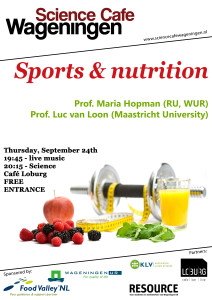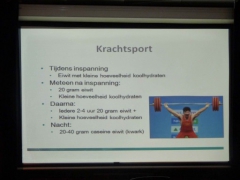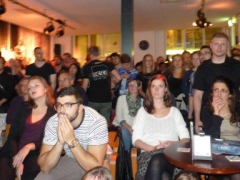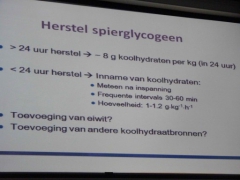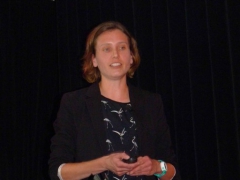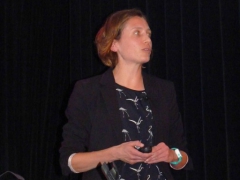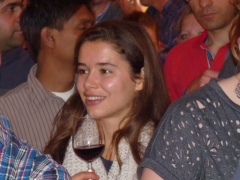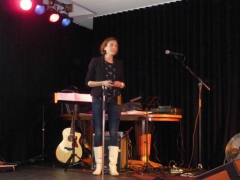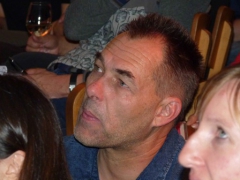Summary
Past Thursday, September 24th, Loburg was packed for the session on ‘Sports and Nutrition’. People came in much earlier than usual, to be sure to have a seat in this well visited edition of Science Café Wageningen. They were treated to live chansons played by the band VESPA, and to two interesting talks by Prof. Maria Hopman and Dr. Milou Beelen.
Prof. Maria Hopman (RU, WUR) started off with telling us we are made to move. “Sitting is the new smoking”, she warned the audience. Inactivity has its effect on our health even when we are young, a study among 10 year olds showed. As Hippocrates already said: “eating alone will not keep a man well; he must also take exercise. For food and exercise, while possessing opposite qualities, yet work together to produce health.” Prof. Hopman stressed that recent research shows fitness may be more important to our health than fatness. Her main point was to convince us to make being active an important part of our daily life. She encouraged researchers to continue to discover ways to use food and exercise to improve our health.
Dr. Milou Beelen (Maastricht University) gave us more insight in the interaction between the food we eat and our recovery from exercise and adaptation to exercise. For the recovery of our body, it is important that our energy stores are replenished, specifically in the form of muscle glycogen. For amateur athletes, who have more than 24 hours to recover from their exercise, no special action is required to do this. The energy from your normal diet is sufficient for your body to recover. Professional athletes who have less than 24 hours before their next exercise will have adjust their diets to allow their body to recover. The intake of a combination of carbohydrates and proteins before or immediately after training will stimulate the recovery of their energy stores and help their muscles to adapt to their exercise. This is especially important for resistance exercise. Then after exercise, a regular intake (every hour or so) of 20g of protein will help the muscles to adapt to the exercise and become stronger. A tip she gave all athletes: when you have exercised, go to bed with some protein in your stomach. Eat some ‘kwark’ before you go to bed.
Many people in the audience were eager to ask their questions afterwards, both on a personal level (‘what should my diet be like?’) and a more conceptual level. Although individual dietary advice does not come for free, some guidelines for a recovery diet after endurance training or resistance training are given in the slides. And for those who want to lose body fat: don’t go for intensive trainings, longer low intensity trainings will allow your body to burn the fat much better.
All in all we have enjoyed a very interesting evening together. We hope to see you next time at Science Café!
Presentations
Presentatie Science Cafe 24 sept 2015
Gallery
Photos courtesy of Neli Prota and Menschel Applied Photography

